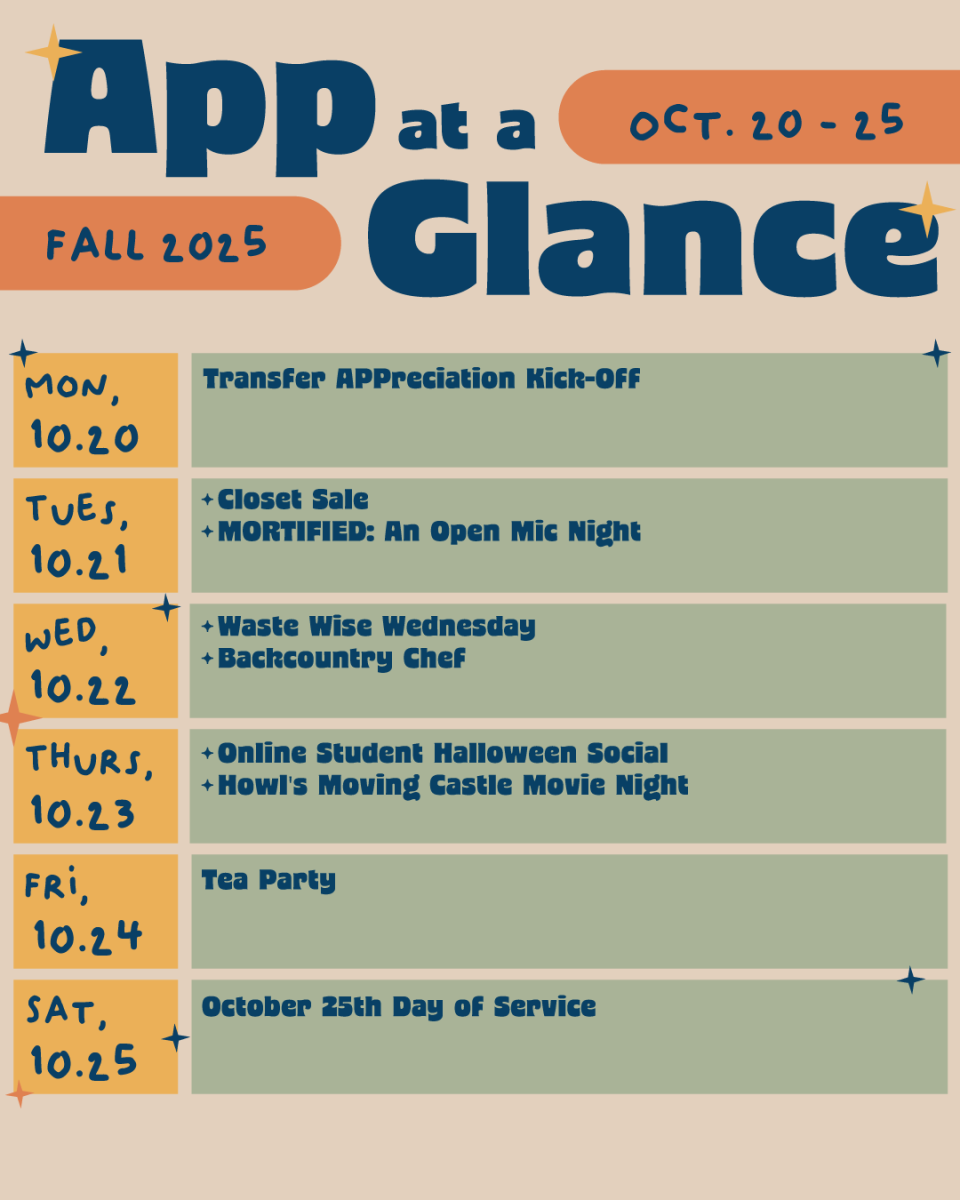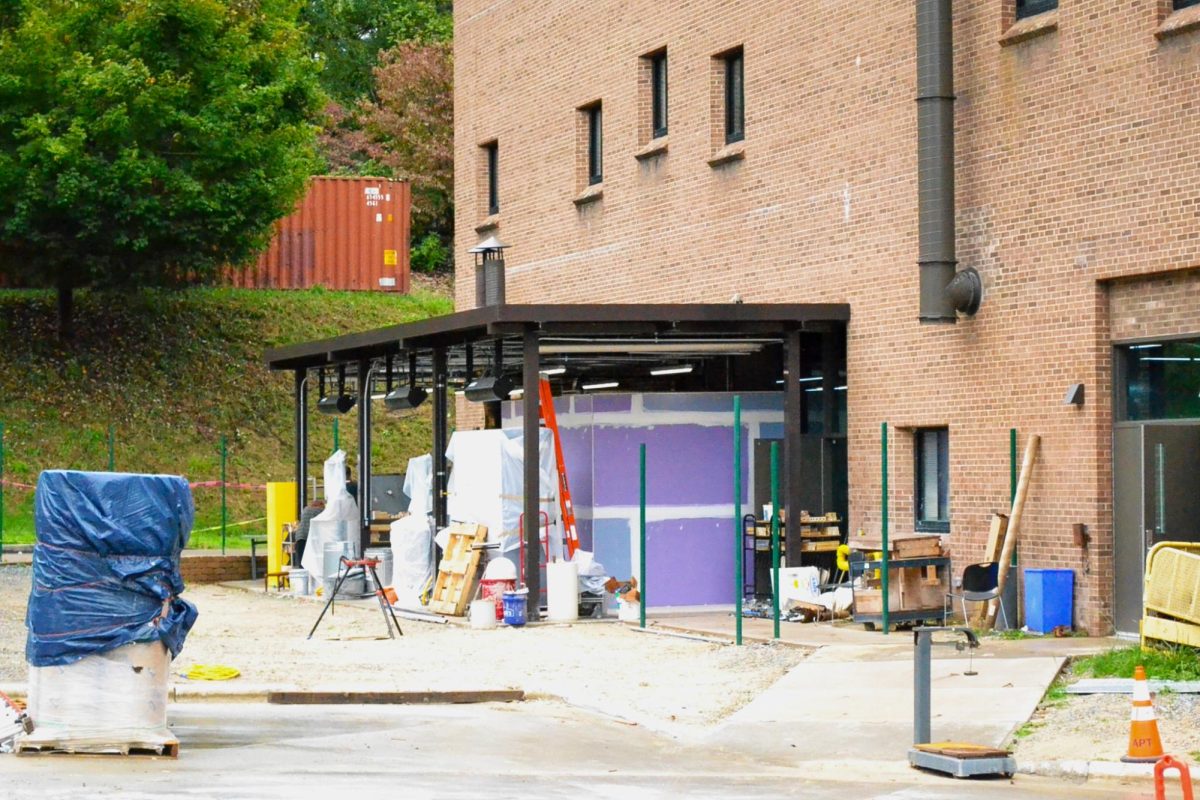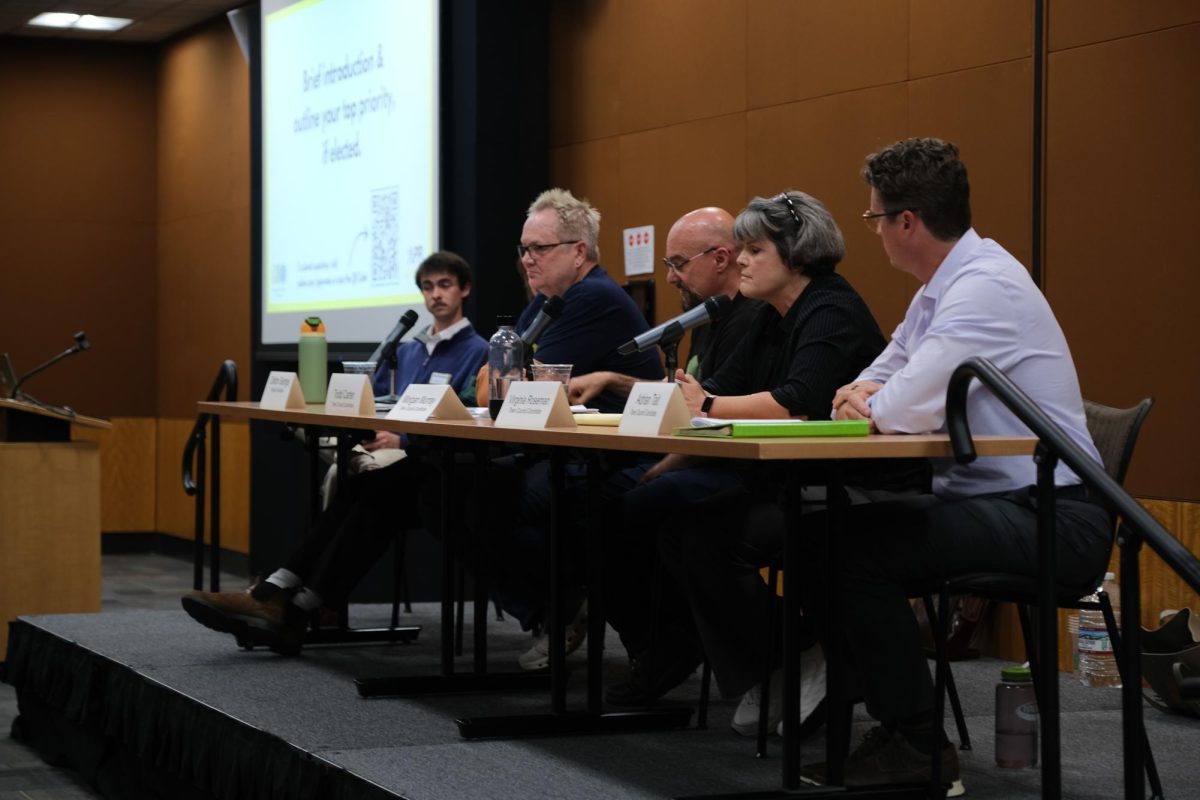Since President Donald Trump’s inauguration, executive orders and policy changes have affected numerous job sectors. From hiring freezes and budget cuts to limitations, as the class of 2025 prepares to enter the workforce, those with plans to enter impacted fields are now faced with uncertainty.
The Appalachian spoke with May graduates who are either planning to enter a now changing field or once had plans in doing so.
Education
According to U.S. News and World Report, education is the second most popular major at App State as of 2023. However, the field faces uncertainty under the Trump administration. On March 20, Trump signed an executive order which aims to dismantle the U.S. Department of Education.
Emily Horvath is a senior middle grades education major. She said teaching is a career that has always faced changes and scrutiny, so it’s “not a new concept” to her. However, the Trump administration has her worried going forward.
Horvath, who has been student teaching since January, teaches middle school history and fears potential changes to the curriculum.
“I definitely do worry that moving forward there’ll be some new regulations within the Department of Education being dismantled and all that stuff that’ll prohibit me from being able to tell my kids about history as it has happened,” Horvath said.
At the start of his second term, Trump signed the Improving Education Outcomes by Empowering Parents, States, and Communities executive order, which aims to restrict schools from teaching topics such as racism, white privilege, among others, while also promoting patriotism.
Horvath said new policies on topics like immigration are also affecting students, noting that some have asked whether or not U.S. Immigration and Customs Enforcement would show up to the classroom.
“There’s nothing you can tell a 12-year-old that will comfort them when they’re worried about that kind of thing,” Horvath said. “They’re kids; they shouldn’t have to worry about that.”
As changes continue, Horvath said she tries to be careful when teaching current issues and be as nonpartisan as possible. However, she doesn’t want to be so nonpartisan that children impacted by the administration can’t come to her.
Although hopeful she and her friends will find jobs amid the teacher shortage, there is no telling what those jobs will look like.
“The overwhelming fear is not, ‘Will I be able to get a job?’ or, ‘Will I be able to have a secure job?’” Horvath said. “Instead, ‘Will I be able to do my job the way I know it needs to be done?’”
Journalism
In 2017, Trump called the news media the “enemy of the American people,” in a post on X. In 2025, his administration is taking new steps to control and restrict the media.
Ella Murns is a senior communications studies major who is going to the University of Georgia for a master’s degree in journalism. She said she has a lot of anxiety and has been “questioning a lot recently.”
“I’m terrified of the future of the media,” Murns said.
Before Trump took office, her outlook toward the career was more optimistic. Since then, much has changed.

Journalists across the country are being met with limitations on what they cover. In late February, the White House announced it would only allow a rotation of select news outlets to be a part of the press pool.
On April 8, U.S. District Judge Trevor McFadden ordered the White House to lift the restrictions on AP, according to Reuters, amid lawsuits between AP and the Trump administration.
On April 15, the administration said three major wire outlets, including The Associated Press, would have limited spots in the press pool. AP’s wire service articles are published by numerous outlets from around the world.
Murns said restricting any kind of media is a bias “in and of itself” and covering only what Trump and the administration wants to show is an “unrealistic version of history.”
“It’s scary people out there don’t want us to know the truth,” Murns said.
Although the news media industry faces restrictions and censorship, Murns, who remains passionate about the industry, said “I will not sacrifice my morals.”
Nonprofit work
Nonprofits have felt the Trump administration’s impacts in multiple facets.
One graduate student receiving a master’s in public administration with a concentration in nonprofit management currently works with nonprofits and local governments. With our anonymity policy, they have been granted anonymity given potential risks to their position in this field.
“There’s a big issue where a lot of nonprofits are in danger of losing their funding because of the administration,” they said.
According to research from Urban Wire, “Government grants support nonprofits in every state.”
Though Trump’s attempt to freeze grants was rescinded, the student said there is “a lot of concern and uncertainty” regarding funding.
“It’s really a scary time for a lot of nonprofits right now,” said MaryAnn Sanders, a senior sustainable development major. “So hiring new positions when you don’t know if you’re going to have the grant funding to continue to fund those positions is not something, like a risk, that a lot of nonprofits are able to take right now.”
Sanders said six months ago she definitely saw herself working for a nonprofit. Now, she has had to pivot her job search and is looking into for-profit organizations and consultation work “rather than just doing what I would like to do,” given the competition in the market.
Several nonprofits fall under agencies in the government. With thousands of government jobs being cut, any job under an agency is at risk.
“The federal government for the longest time had the reputation of being kind of the safe field to get a job in,” the graduate student said.
This is no longer the case.
Environmental sciences
“Science is not really a thing this administration likes at all,” senior environmental geology major Cait Kinnamon said.
In his second term, Trump has enforced thousands of federal layoffs, and the Environmental Protection Agency plans to lay off thousands more scientists, cut scientific research funding for scientists and universities and more.
Kinnamon said if a scientist or institution disagrees with the administration about issues like climate change or diversity, equity and inclusion, it is an “agree or you’re not gonna get your funding” situation.

Kinnamon, who will be attending graduate school, said many places she would have applied to for graduate school no longer receive scientific funding. Though she said she will be in school for a few more years, after that, “it’s gonna get really interesting.”
“Any research field is definitely gonna suffer,” Kinnamon said.
In April, Trump signed two executive orders which aim to boost coal mining. Though mineral, oil and gas industries are seemingly protected, the same cannot be said for other areas.
Sam Mowen is a senior environmental geology major who worked for the U.S. Forest Service in the past — an agency she had plans to work for that has been notably impacted by layoffs.
“I have credits that allow me to apply for internal jobs, and they don’t matter anymore,” Mowen said. “That was mostly the jobs that I had applied to.”
She said she feels discouraged about graduation because, despite her passion toward the environment and what she does, the industry is not supported by the current administration. When she found out the jobs she had applied for were eliminated, for her it was “starting at square one again.”
Although “nobody is certain” on what will happen in her field, Mowen reminds herself that “the current administration is not forever.”
Social work
“After graduation I wanted to either work for or develop an organization designed to support LGBTQ+ youth as well as go into the mental health field,” graduate social work student Olivia Weaver wrote. “With the Trump administration, I don’t feel like that’s possible right now because of policies regarding this population.”
Under the Trump administration, several moves have been made regarding the LGTBQ+ community such as restricting gender-affirming care for youth, eliminating funding for health research, removing LGBTQ+ protections for students and more, all of which are “isolating a vulnerable population,” Weaver wrote.
Though some policies such as the “Don’t Say Gay” bills — bills restricting discussion surrounding LGBTQ+ topics in classrooms — were created and passed in states prior to the current administration, Weaver wrote, “The Trump Administration is essentially making discrimination legal for this.”
“Adults, such as social workers and educators, are not allowed to discuss issues concerning being in the LGBTQ+ community,” she wrote.
In some instances, such as in North Carolina, administrators and educators are to notify a child’s guardians if they wish to go by a different name or pronouns or disclose their sexual orientation. She worries this may increase mental health struggles and homelessness among youth.
“While many educators do not wish to break their students’ trust or make their home life more unsafe than it already may be, they do not have much of a choice in situations such as this,” Weaver wrote.












